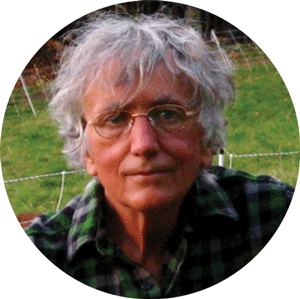After graduating with a degree in Cell Biology from the University of Connecticut in 1975, Bill lived in Colorado for two years before settling in Bennington, Vermont. There he assumed responsibility for the care of his mother, who suffered from early onset breast cancer, as well as the care and financial responsibility for three minor siblings. To support his family, Bill found work at a small cancer research institute at a rural hospital serving the Bennington community. After his mother’s death and graduation of his youngest brother from high school, Bill worked at the UC San Diego Medical School for two years before entering graduate school at the Medical College of Vermont. After completing postdoc training at the Roche Institute of Molecular Biology in New Jersey in 1992, Bill joined the faculty at Roswell Park Cancer Institute, where he has worked as a senior cancer scientist since.
All five of Bill’s mother’s siblings died of cancer, his brother was diagnosed with prostate cancer at age 41, a sister died of breast cancer at 65, and another sister has been treated for ovarian and breast cancer. This extensive family history of cancer led Bill to pursue a career as a cancer scientist in order to obtain a better understanding of the malignant forces killing his family, which also threatened to kill him. Much of the research in his laboratory has investigated DNA damage response pathways that are often defective in cancer cells. In the mid 1990s, his laboratory pioneered the use of the model organism S. cerevisiae to investigate the synthetic lethal interactions between drugs and mutations that eventually became the conceptual basis for personalized medicine.
Not surprisingly given his family history, Bill was diagnosed with prostate cancer in 2013. Genetic testing revealed his cancer was caused by a pathogenic mutation in the breast cancer gene BRCA2, which plays an important role in the DNA damage response pathways that have been under investigation in the Burhans laboratory. In addition to continuing to pursue research, Burhans lectures on the importance of genetics and genetic testing to cancer patients and clinicians and serves on the Board of Directors and Advisory Board of the AnCan Foundation, a cancer patient advocacy organization.











